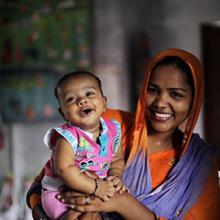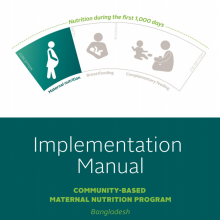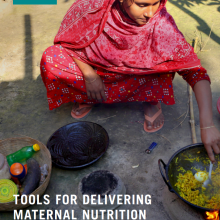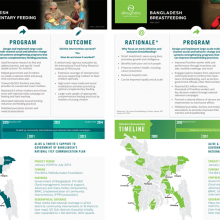Journal article
Nov 27 2023

Strengthening Nutrition Interventions during Antenatal Care Improved Maternal Dietary Diversity and Child Feeding Practices in Urban Bangladesh: Results of a Quasi-Experimental Evaluation Study (Nguyen PH, Sununtnasuk C, et al. Journal of Nutrition. 2023)
Announcement
May 31 2022

South Asia Newsletter
Subscribe to and read our monthly South Asia Newsletter to stay up to date on all of Alive & Thrive's activities across the South Asia region.
Journal article
Feb 06 2018

Factors influencing the uptake of a mass media intervention to improve child feeding in Bangladesh (Kim, S., 2018. Maternal & Child Nutrition)
This study aimed to examine the factors influencing the uptake of infant and young child feeding messages promoted in TV spots that were launched and aired nationwide in Bangladesh. Factors associated with TV spot viewing and comprehension (i.e.
Guide/Manual
Aug 03 2017

Implementation manual: Community-based maternal nutrition program
The resources below provide MNCH program leaders and implementers with tools for delivering maternal nutrition programs at scale. The materials were originally developed in 2016 by the Government of Bangladesh, BRAC, and Alive & Thrive. The program was funded by Global Affairs Canada.
Toolkit
Aug 03 2017

Tools for delivering maternal nutrition programs
Alive & Thrive used the tools presented in this document to implement its maternal nutrition program from 2015-2016.
Poster/Graphic
Jun 02 2017

Breastfeeding and complementary feeding intervention summary and results
These two infographics summarize Alive & Thrive’s work in Bangladesh from 2009 to 2014. The rigorously evaluated intervention resulted in large scale improvements in exclusive breastfeeding and complementary feeding practices.

